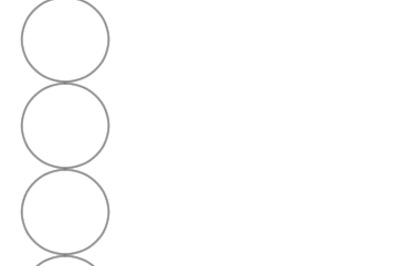
views
Located on the road to Mysore, Alpine Wineries is founded by 33-year-old Raghavendra Gowda. He is on a mission to translate the physical environment of his vineyard into a truly expressive wine and master the rarefied world of winemaking. Kaveri Valley, where Alpine is located, has been deemed the new appellation region in Karnataka by the state government - another feather in Gowda’s cap. “My family (the SPR group) has been in the distillery and liquor retailing business for over four decades,” he tells us, explaining why he first decided that the best way to tap into India’s rapidly growing wine segment was to buy relatively inexpensive wine in bulk from established wine regions around the world and bottle it here. “But then eight years ago I went to Europe to explore the idea further. It was wine planting season in Austria and I volunteered to help out on a friend’s vineyard. That was when I realised that wine was not just a drink, but an expression of a place and a vintage. Growing and producing it was a culture, a way of life and a passion. It stopped being just a business and I fell in love,” he says, simply. Gowda met up with wine people from France, studied Viticulture, worked as a cellar intern around Europe and then brought his carefully acquired expertise home. “I realised we owned 1,500 acres of land, jointly with several relatives near Mysore which was left barren for almost 35 years. Perfect, because it was virgin land for me to experiment with,” he says. Gowda literally pitched a tent on the barren property and began analysing the soil. It was hard work, he recalls, and people thought he was crazy. He studied the weather patterns in the area over the last ten years slowly and painstakingly. Then, he began to match rootstocks that suited the soil and import the right varieties and clones from Europe Taking the tourVisit Alpine winery and you will be struck by the sheer attention to detail and long term planning. The necessary infrastructure is all in place. Water and electricity lines have been laid out at a substantial cost (four crores) underground, so that no unseemly wires mar the pristine landscape. The winery itself is built to world class standards with a current capacity of 400,000 litres and highly advanced cooling, storing and bottling systems. “I have imported the latest in drip irrigation from Israel, specially designed tractors from Brazil, pumps from the United Kingdom and wine presses from Germany. Even our massive wine tanks come from Austria and oak barrels from France,” he says. As Alpine expands production, they have provision to add more tanks. “I envisage going up to 1.2 million litres if everything goes according to plan,” he tells us, smiling as he expertly shimmies up a ladder on his gleaming stainless steel vat, ponytail in place and wine glass in hand. The magic formula Gowda then describes his wine making process in detail - maybe a tad obsessively.Grapes are harvested at precisely the right time, washed thoroughly, put in a crusher-destemmer separating the grape from the stem, and then gently pulped into a mushy material called ‘must’. This is then transferred to our fermentation tanks, to undergo a cold soak. Then the fermentation process begins and yeast is added. The length of fermentation depends on the type of wine and the winemaker’s technique,” he explains. After fermentation, the wine is pressed away from the skins and moved to a holding tank to sit for a while, allowing any sediments and dead yeast cells to reduce out. The ageing process is the final stage and the wine is placed in oak or redwood barrels. Tannin plays a vital role in barrel ageing. “Although most tannin in wine comes from the grapes, some of it is also liberated by the barrels. We import ours from France,” he adds. A case for premium“It is the attention to every small detail in the whole process. Premium wine making involves doing all the little things right, so that, when taken together, the sum of all of them is greater than any single part of the process. We keep the yield down through pruning and use grapes not common in India like Cabernet Franc, Malbec and Tempranillo,” he explains.Current portfolioWe have bottled our first vintage 2011 and currently have three reds at three different price points on the shelves (`414, `685 and `875) — Oro, Vindiva Classic and Vindiva Reserve. The reds are a blend of Shiraz and Cabernet Savignon. The whites will be ready too. Backed by experience Stephane is a self-aught vintner who has been in the business since 1982. He is the most respected consultant in Bordeaux, with famous vineyards. He also consults in America, Spain, Italy, Austria, Lebanon and Turkey. He first defines the potential of a terroir and then adapts his wine making techniques to express that to maximum advantage.


















Comments
0 comment